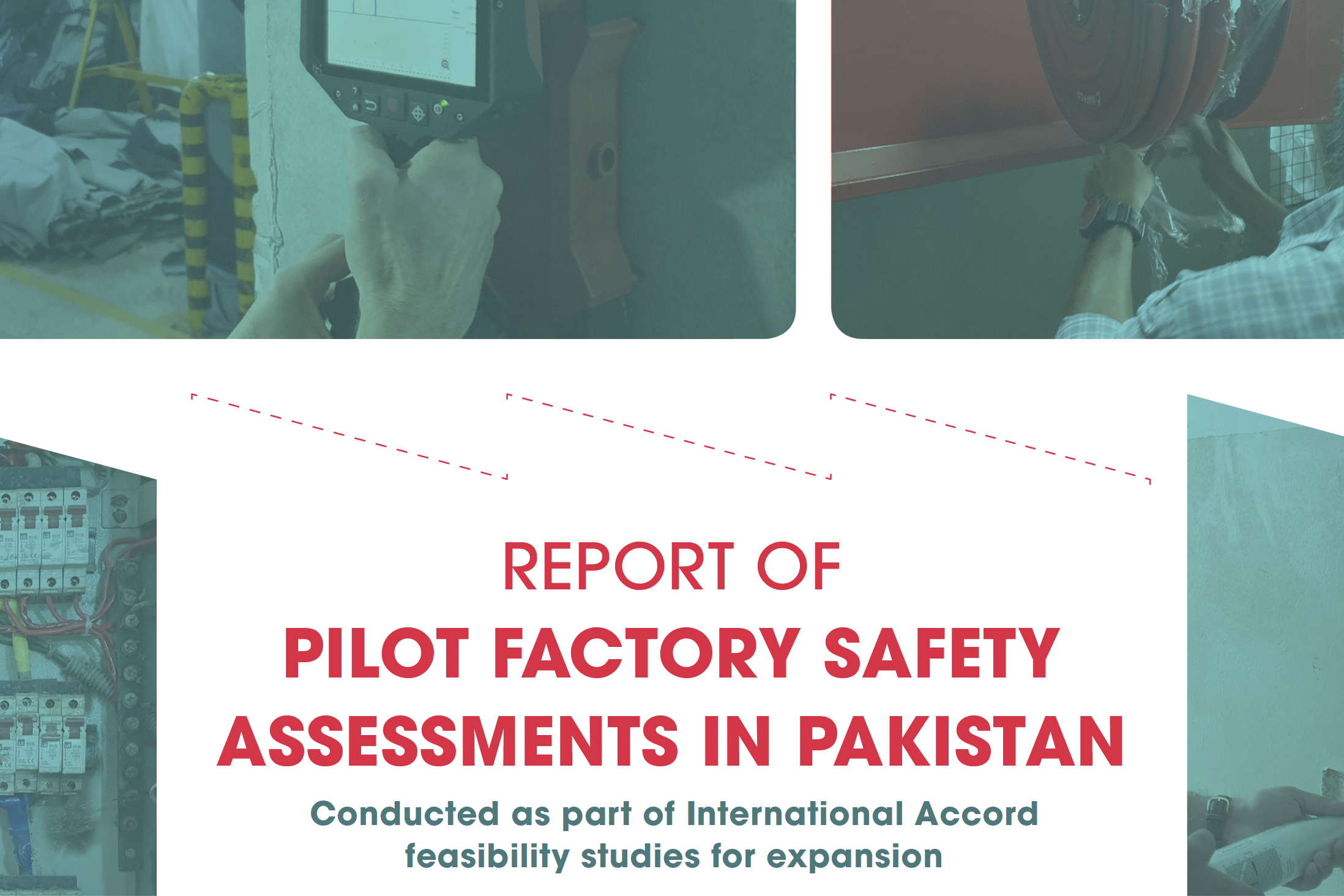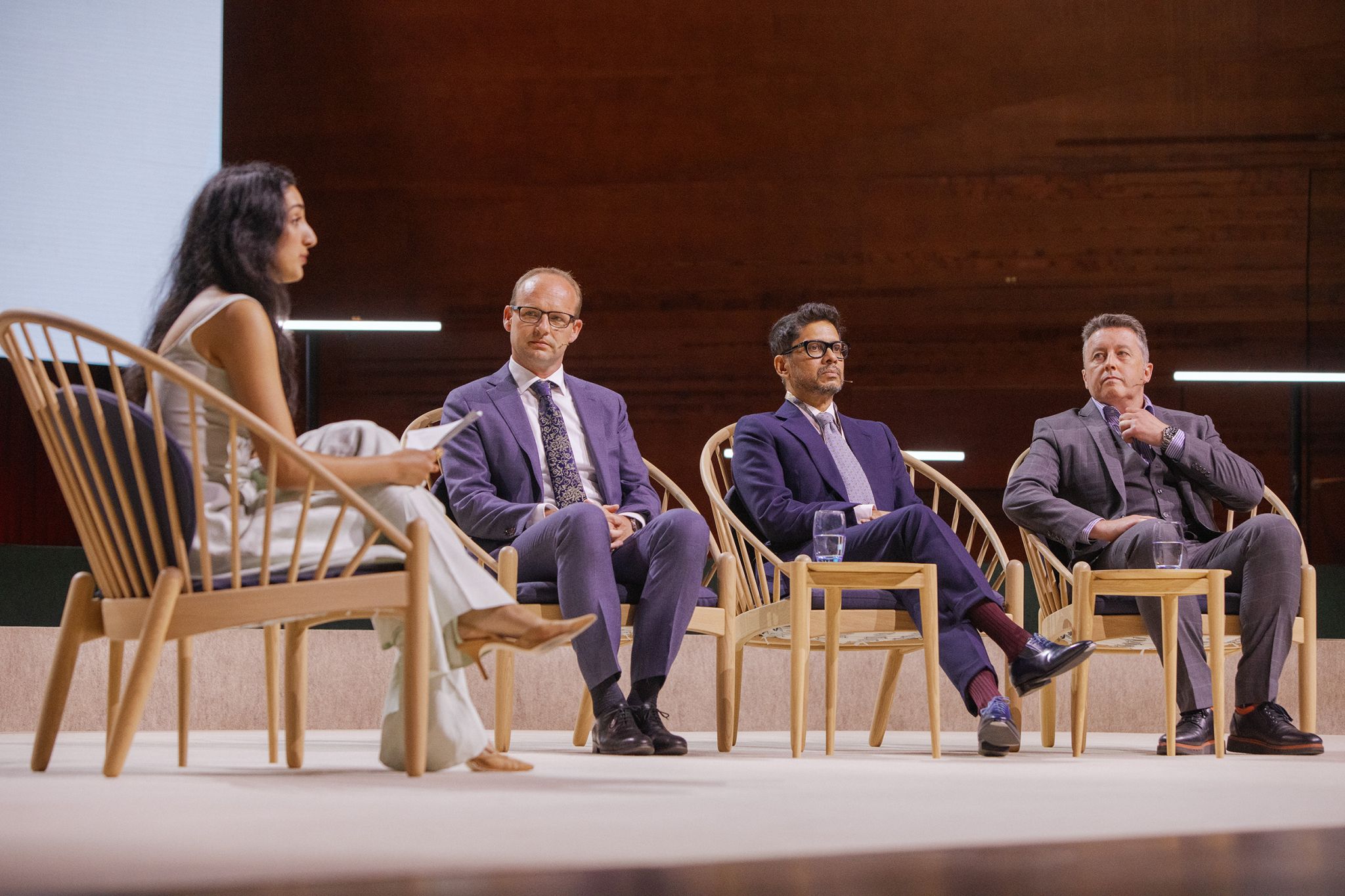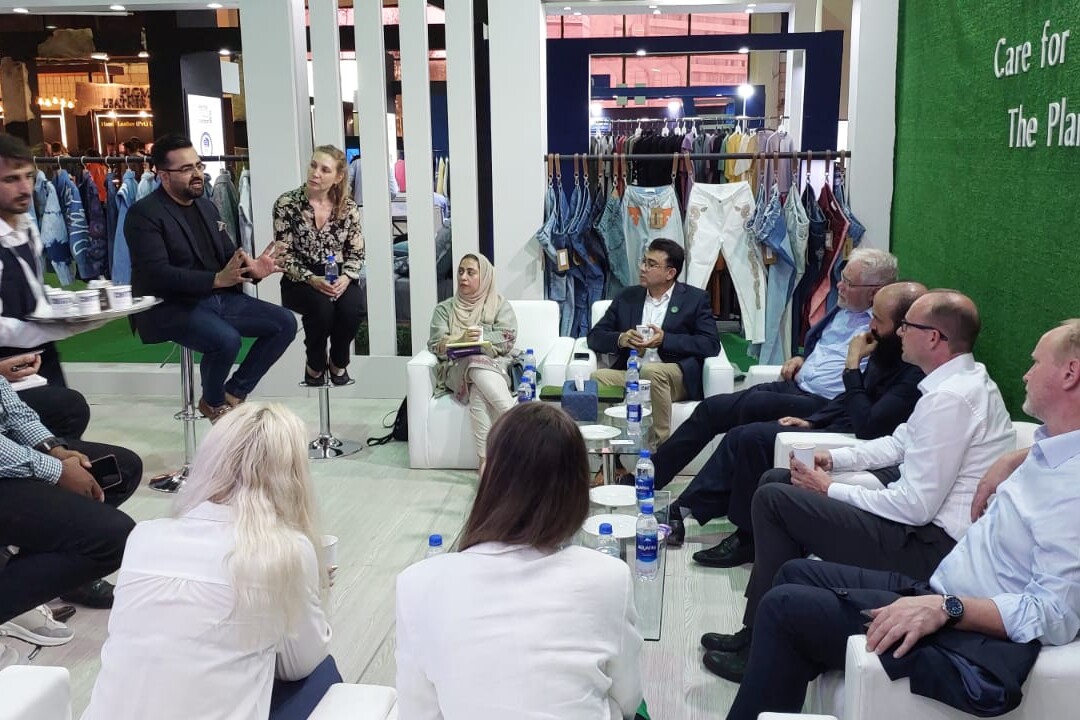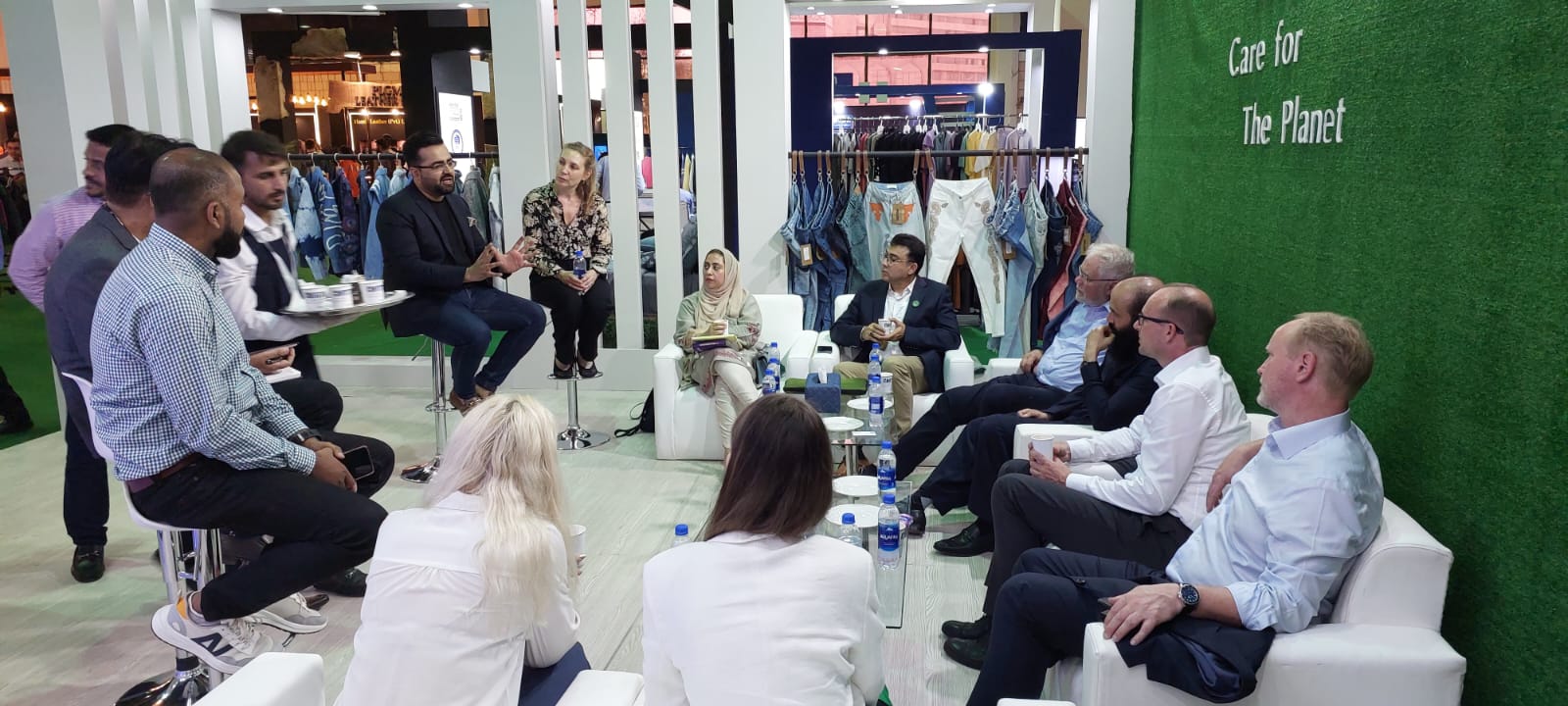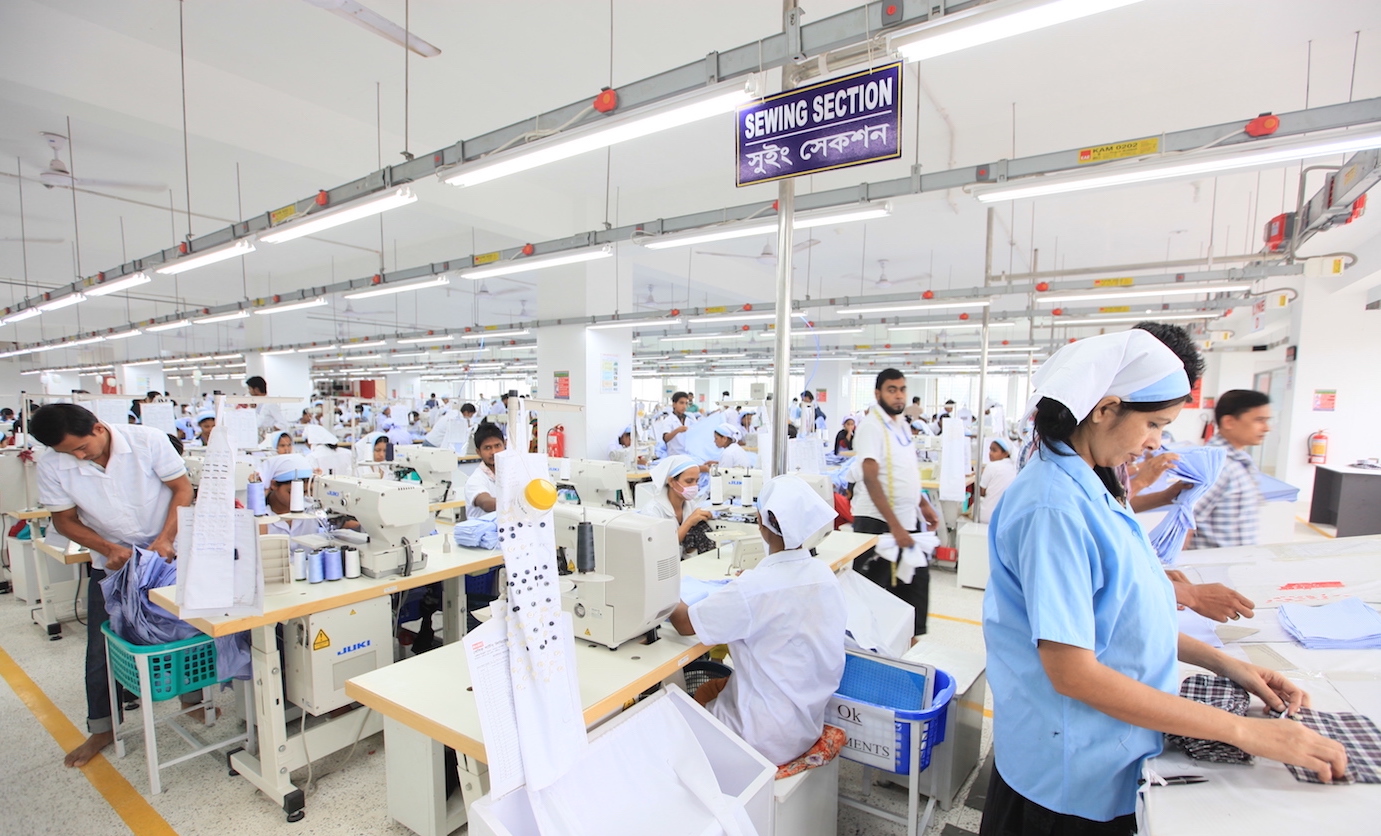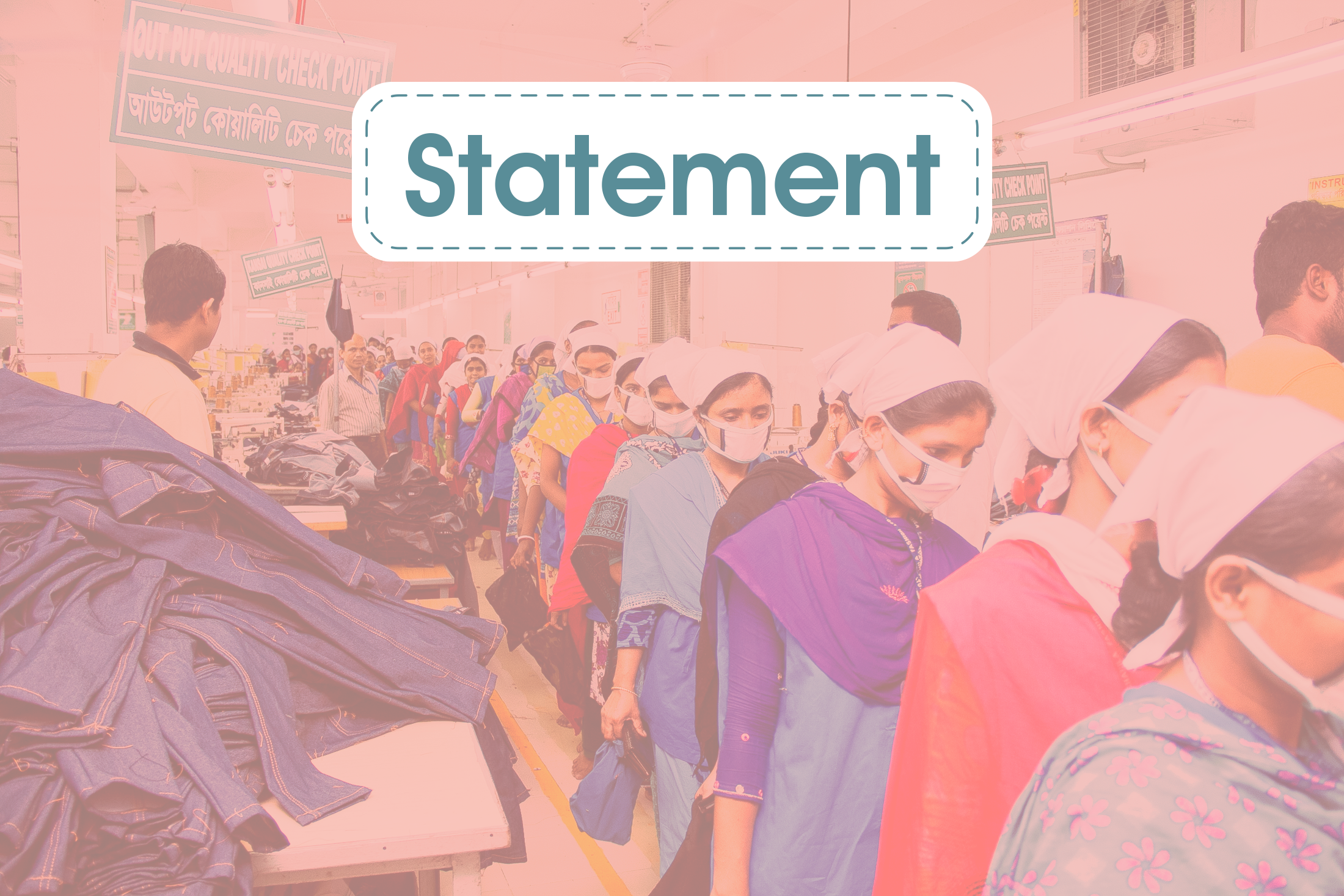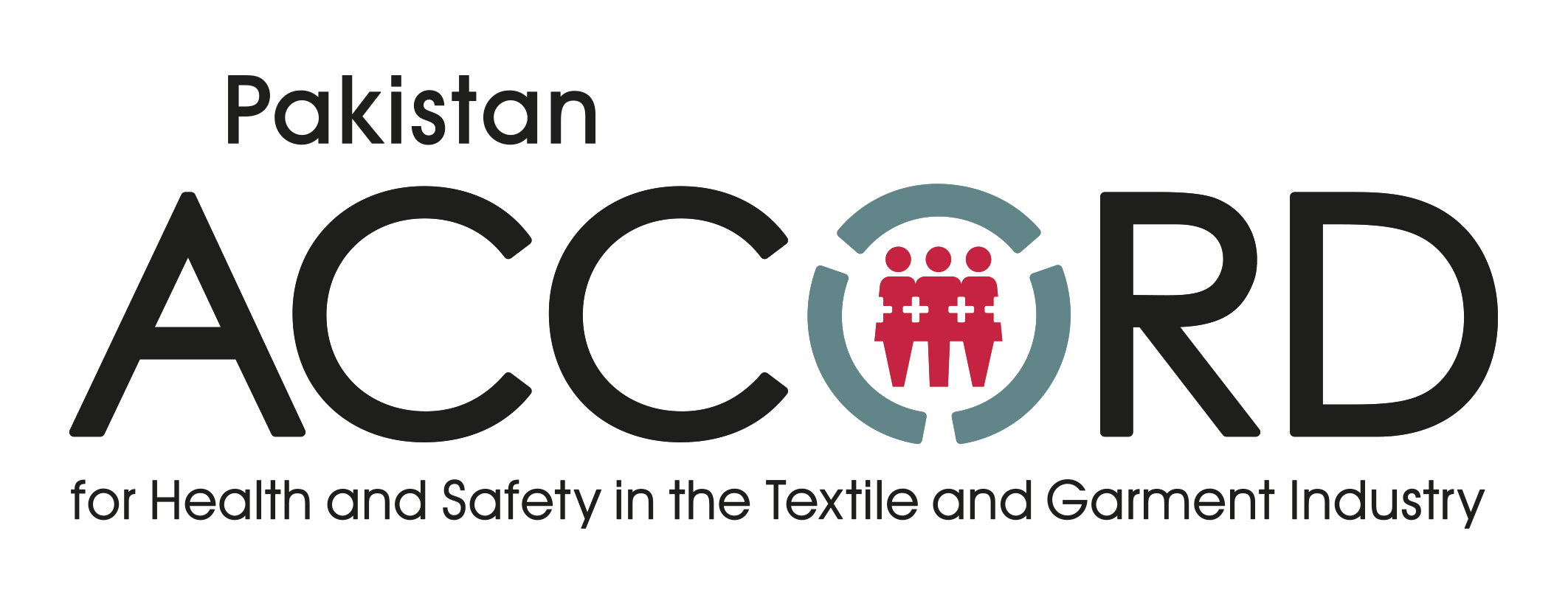
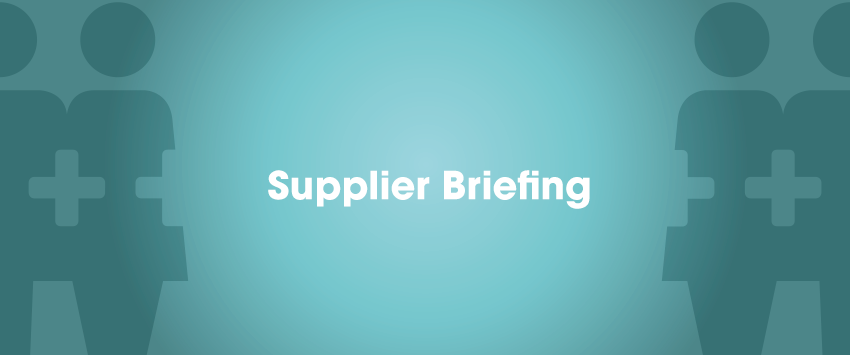
Supplier Briefing #5
These briefings are designed for all factories and suppliers listed by Pakistan Accord signatory brands. They include updates on key developments under the Pakistan Accord, along with information on upcoming events, guidance materials, and resources for suppliers.
We encourage all suppliers and factories covered by the Pakistan Accord to read these briefings and to share suggestions on what they would like to see in them by contacting us via pakistan.factories@internationalaccord.org.
This briefing includes updates on:
- Coverage: Number of Signatory Brands, Covered Factories and Workers
- Program Rollout: Inspections and Remediation, Workplace Program
- Events: Needs Assessment Workshop
- Implementation: Hiring Update & Vacancies
Number of Signatory Brands, Covered Factories and Workers
At the time of writing this briefing, 128 global brands sourcing textiles and garments from Pakistan have signed the Pakistan Accord and committed to working with their suppliers to ensure workplace health and safety. The latest brands to sign the Pakistan Accord include Fatface Ltd., Outerstuff LLC, Image International Limited, Pel Industries, among others.
The Pakistan Accord signatory brands are headquartered in 18 countries across Europe, the USA, Australia, Hong Kong, Turkey and Japan, and include some of the world’s largest clothing brands and retailers. Collectively, these brands source approximately US$3 billion worth of goods from over 500 suppliers in Pakistan employing over 574,000 workers.
View the latest list of Pakistan Accord signatories.
View the list of factories participating in the Pakistan Accord programs.
Program Rollout
Factory Inspections and Remediation
Inspections
85 garment and textile factories in Karachi, Lahore, and Faisalabad covered under the Pakistan Accord have been inspected on fire, electrical, and structural safety. By September, the Accord expects to conduct initial inspections at 100 factories. All factories are being inspected against the Pakistan Accord Building Standard (Standard) that establishes minimum life safety criteria to reduce danger to life from fire, structural, electrical, and boiler hazards as well as safety risks relating to the storage, use, and handling of hazardous substances.
Remediation
CAP Template Launch Webinar – June 2024:
The Pakistan Accord Secretariat organised a briefing session on 11 June for the first 50 inspected factories. This session introduced the purpose, steps, and roles of brands and suppliers in the technical finalisation of the factory Corrective Action Plans (CAPs). With support from the Pakistan Accord Secretariat, inspected factories develop a CAP and agree on timelines to address the remediation of safety findings in a timely and effective manner.
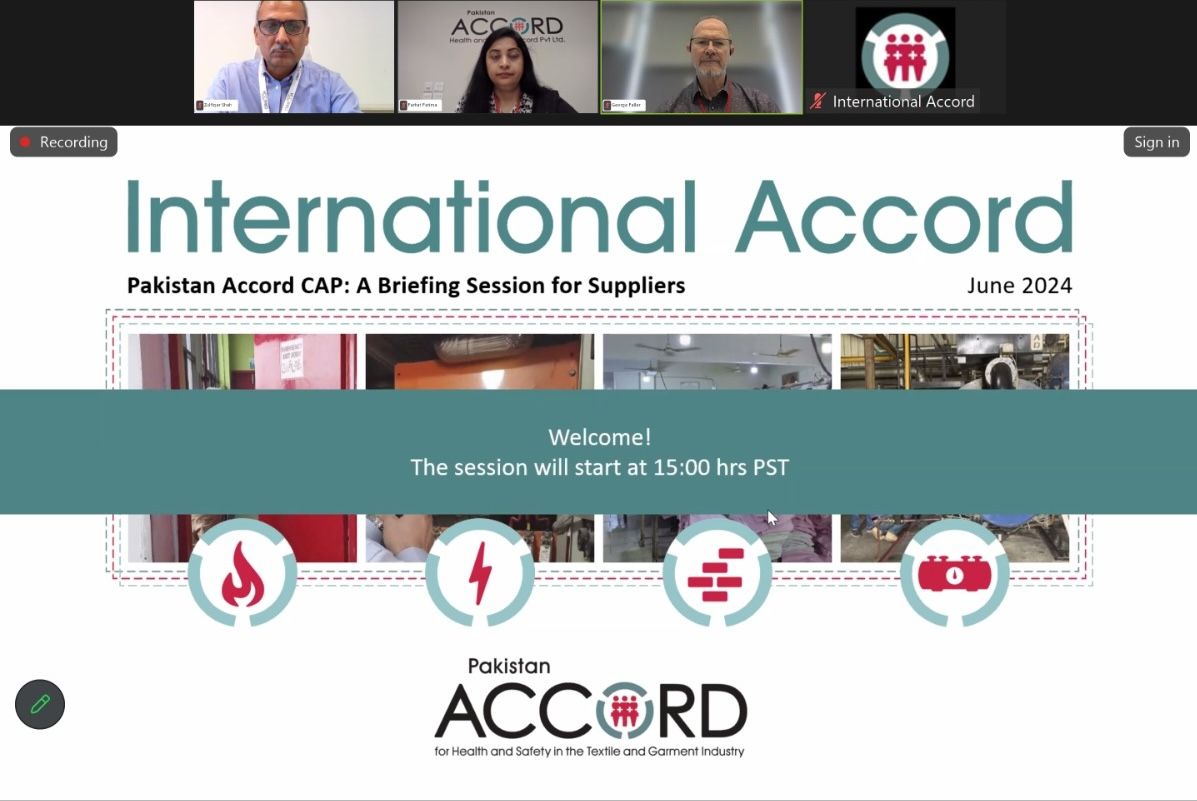
The webinar included technical insights on the CAP templates by George Faller, Chief Safety Officer, and updates on the rollout of the inspections program by Zulfiqar Shah, Country Manager of the Pakistan Accord. The session was moderated by Farhat Fatima, the Remediation Department Manager for the Pakistan Accord.
We thank the over 60 representatives of garment factories from Karachi, Lahore, and Faisalabad for participating in the webinar. The Pakistan Accord Secretariat intends to organise more such webinars for suppliers to explain the CAP development process.
Finance Plan Briefing for Suppliers – August 2024:
The Pakistan Accord Secretariat conducted a briefing session to a first group of inspected factories, offering insights into the Accord’s financing remediation policies. During the session, participants were introduced to the Finance Plan Guidance developed by the Secretariat to support factories in the financial planning of their remediation works. This Guidance offers tools, including Remediation and Finance Schedule Templates, designed to support factories in aligning remediation costs with the timelines in their CAPs.
The Pakistan Accord Secretariat will gather feedback on the guidance document and finance planning tools from this first group of factories, addressing any challenges or gaps, before it is rolled out to all covered factories in the coming months.
Workplace Program
Following stakeholder consultations on the design and curriculum over the past few months, the Pakistan Accord Secretariat hosted an informational briefing session on the rollout of its Workplace Program on August 19, 2024, in Karachi. The Workplace Program, which includes Safety Training and a Complaints Mechanism at covered factories, is a key component of the Pakistan Accord. It aims to build the capacity of joint labour-management Safety Committees to maintain safe workplaces, raise workers’ awareness of safety and health, ensure compliance with OSH-related requirements, and provide workers with access to remedy.

The event featured a panel discussion and a detailed briefing, providing participants with an opportunity to ask questions and provide feedback. Over 70 participants representing 30 covered factories attended the orientation session. The International Labour Organisation (ILO) and Deutsche Gesellschaft für Internationale Zusammenarbeit (GIZ) also attended as special invitees.
The Pakistan Accord Secretariat is planning to organise similar informational sessions with additional factories as the program is rolled out in Lahore and Karachi.
Events
Needs Assessment Workshops – August 2024
The Pakistan Accord Secretariat and ARUP, an international engineering firm, organised two needs assessment workshops during the week of 5 August 2024 in Karachi and Lahore. The goal of the workshops is to support local government capabilities in implementing and enforcing health and safety in Pakistan’s textile and garment industry by developing a targeted training program for the relevant Sindh and Punjab government agencies.
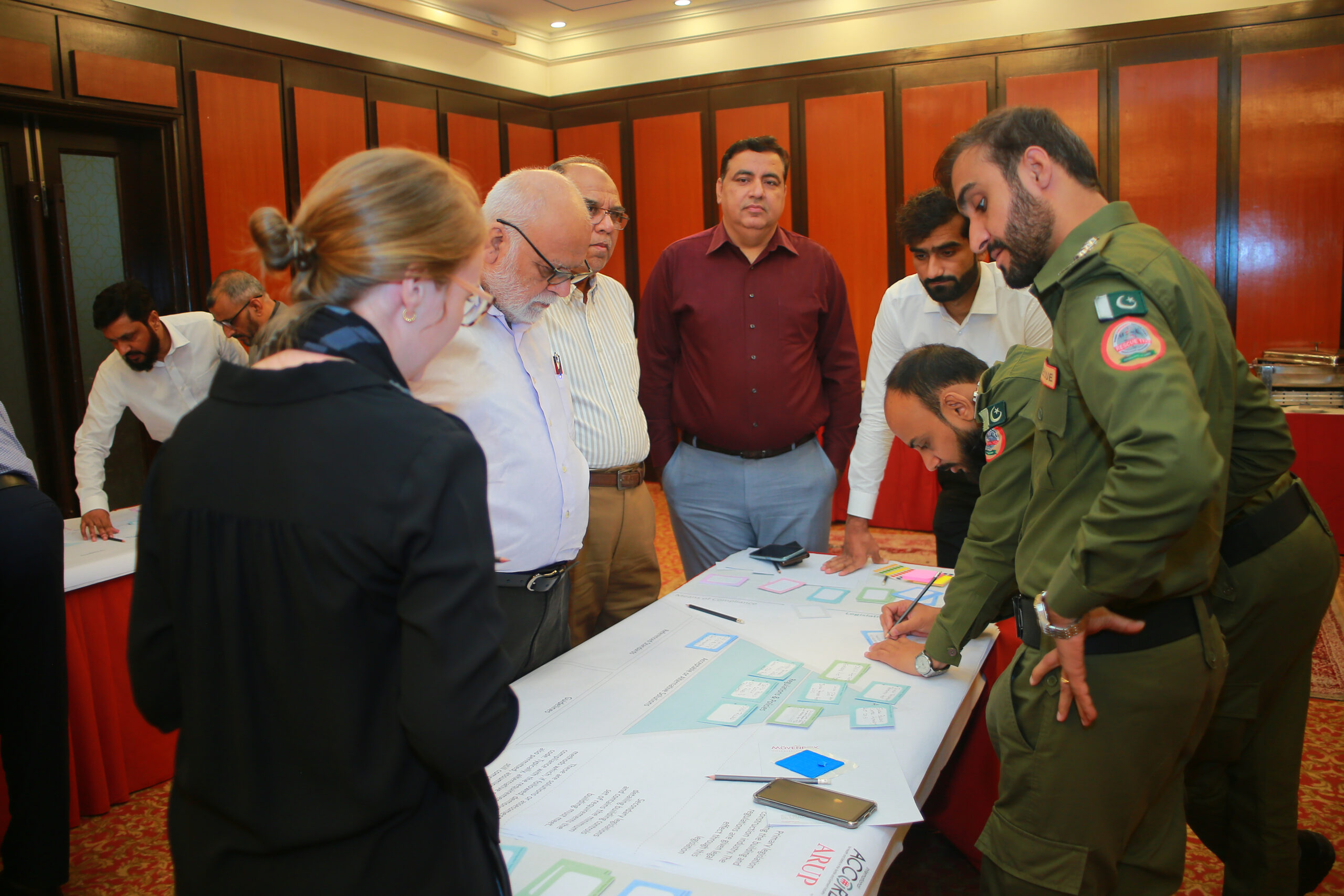
These interactive sessions brought together engineers and key government stakeholders, including Pakistan’s emergency services 1122, the Karachi Municipal Corporation, local building control authorities, and the Departments of Labour and Human Resources, among others. The workshops served as an engaging platform for exchanging information and fostering collaboration among various actors and agencies. Participants critically examined the regulatory framework of building safety, discussed certification and monitoring processes, and identified opportunities for synergy.
Implementation
The Pakistan Accord is in the process of building and training local teams in Karachi and Lahore to ensure the effective implementation of its programs in coordination with covered suppliers and brands. The team has recently hired a new batch of fire, structural and electrical engineers to join the Inspections & Remediation Department as well as training and complaints specialists to join the Workplace Programs Department. Further recruitment of boiler safety experts, training and complaints specialists, and additional support staff is currently in progress. The latest vacancies under the Pakistan Accord are available on the Accord website.
Resources
Stay in Touch
Related updates
July 11, 2023
The pilot safety assessments were initiated in September 2022 to inform the Accord's ongoing feasibility studies and establish an effective safety inspection and remediation program in Pakistan.
June 29, 2023
The Global Fashion Summit organised by the Global Fashion Agenda (GFA), was held from 27-28 June at the Copenhagen Concert Hall in Denmark.
June 13, 2023
A delegation of the International Accord Secretariat and Accord signatory brands had a fruitful visit to Pakistan from 23 May to 3 June 2023.
June 13, 2023
A delegation of the International Accord Secretariat and Accord signatory brands had a fruitful visit to Pakistan from 23 May to 3 June 2023.
May 29, 2023
200 global brands and retailers have now signed the International Accord for Health and Safety in the Textile and Garment Industry since it took effect on September 1, 2021.
May 15, 2023
Ten years after the first Accord was signed, the Accord Secretariat reflects on the progress in worker safety in the past decade and our vision for the future.

